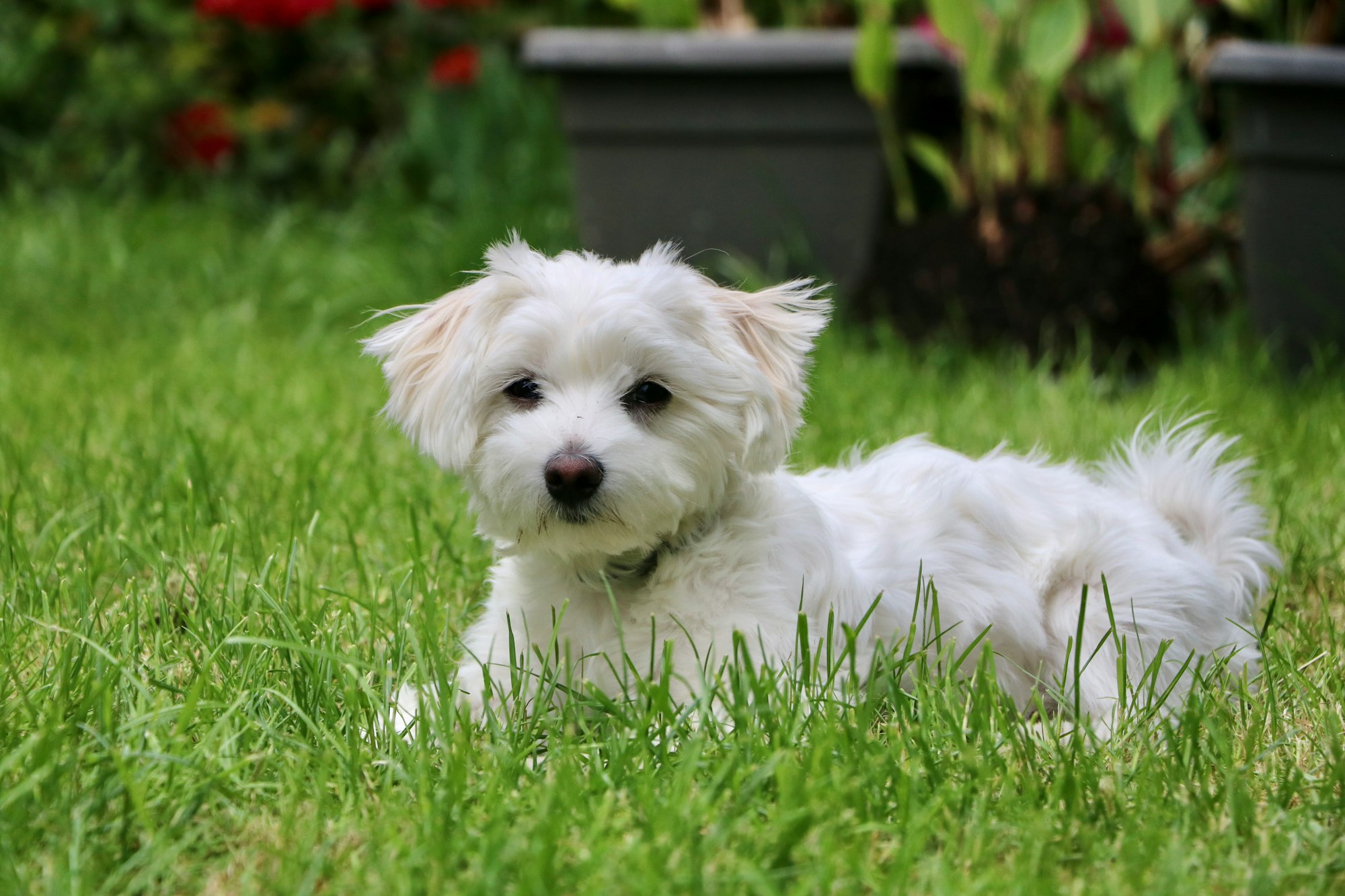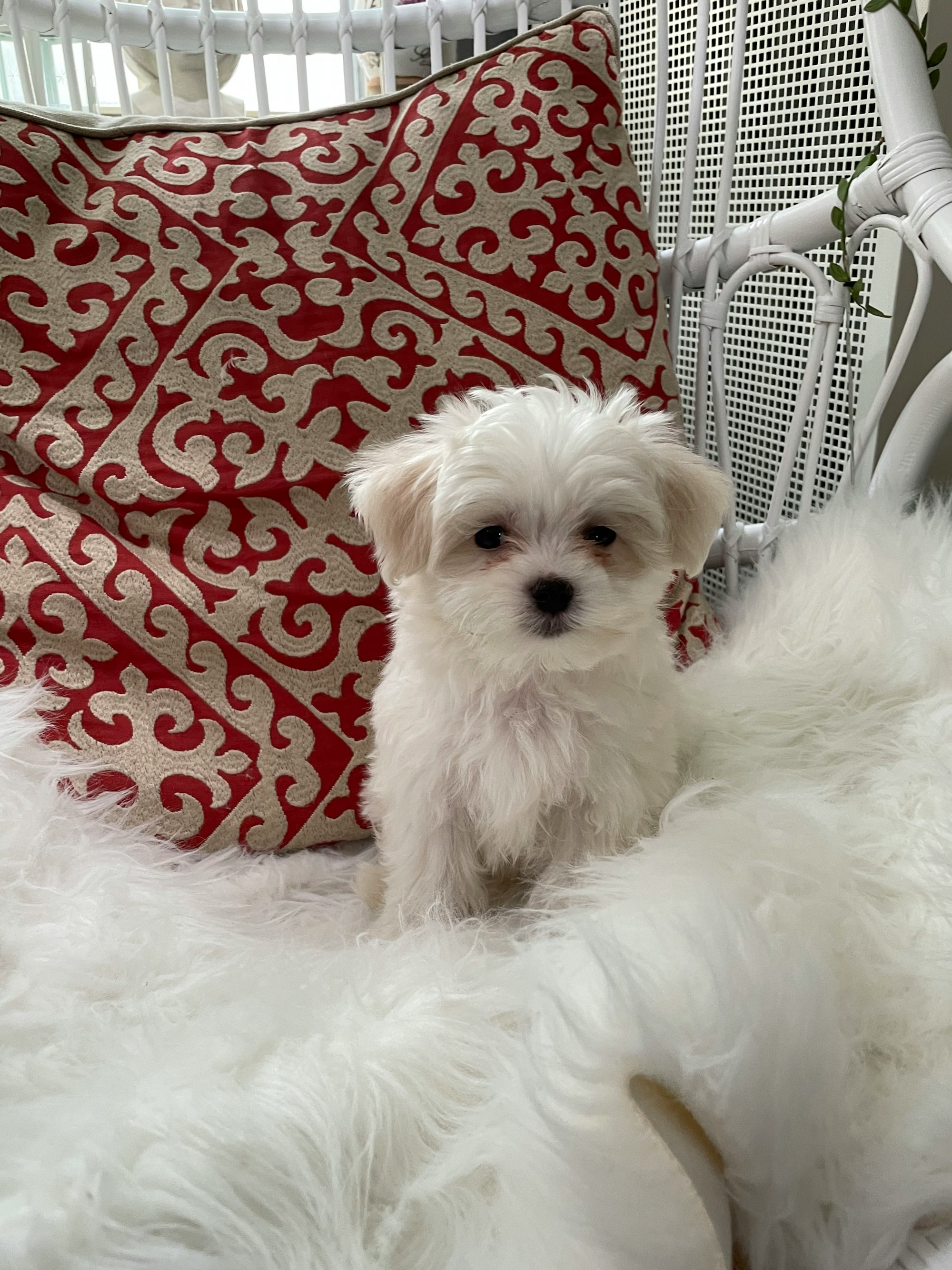Are Maltese dogs hypoallergenic? If you're considering bringing a Maltese into your home, you might be wondering about their potential impact on allergies. In this article, we will explore whether or not Maltese dogs are hypoallergenic and what this means for allergy sufferers.

Understanding Hypoallergenic Dog Breeds
Hypoallergenic refers to something that is less likely to cause an allergic reaction. When it comes to dogs, hypoallergenic breeds are often sought after by individuals with allergies or asthma. These breeds are said to produce fewer allergens, such as dander, which can trigger allergic reactions.
What is a Maltese Dog?
The Maltese, with their beautiful long white coats, are known for being a low-shedding breed. This might lead some to believe that they are hypoallergenic. However, it's essential to understand that no dog breed is completely hypoallergenic. While the Maltese produce less dander than some other breeds, they still produce some allergens.
Appearance
Maltese dogs are known for their distinct appearance. These small-sized companions boast a silky, white coat and expressive eyes. Their elegant, flowing coat gives them an almost regal appearance, making them a popular choice for dog lovers seeking a charming, toy-sized breed.
Temperament
Beyond their physical beauty, Maltese dogs are admired for their friendly and playful temperament. They thrive on human interaction and are known to be affectionate towards their owners. This charming personality has endeared them to families and individuals alike.
Size and Lifespan
Maltese dogs typically fall into the small dog category, weighing around 4 to 7 pounds. Despite their size, they have a relatively long lifespan, often living well into their teens. This longevity enhances the bond between owners and their Maltese companions.
Common Allergies and Sensitivities in Humans
Before we dive deeper into the hypoallergenic nature of Maltese dogs, let's take a moment to understand common allergies and sensitivities in humans. Allergies can vary from person to person, and what triggers an allergic reaction in one individual may not affect another.
Common allergies include pollen, dust mites, mold, pet dander, and certain dog foods. Allergic reactions can range from mild symptoms like sneezing and itching to severe reactions such as difficulty breathing. It's crucial to identify your specific allergies and understand how they may be affected by owning a dog.
Allergies to Dog Dander
Dog dander is a common allergen that can cause allergic reactions in sensitive individuals. Dander is made up of tiny particles of dead skin that dogs shed regularly. When these particles come into contact with individuals who are allergic, it can trigger symptoms like sneezing, itching, watery eyes, and congestion.
While Maltese dogs produce less dander than some other breeds, they still produce some allergens. This means that individuals with severe allergies may still experience allergic reactions when exposed to a Maltese. It's important to consider this factor before bringing a Maltese into your home, especially if you or someone in your family has allergies.
Are Maltese Dogs Hypoallergenic?
The question remains, are Maltese dogs hypoallergenic? As mentioned earlier, no dog breed is completely hypoallergenic. While Maltese dogs produce less dander and shed less hair, they can still trigger allergic reactions in sensitive individuals.
If you or someone in your family has allergies, it is recommended to spend some time with a Maltese before making a decision. This can help you determine if their presence triggers any allergic reactions. Always consult with a healthcare professional or allergist if you have specific concerns or allergies.
Factors That Contribute to Hypoallergenic Qualities in Dogs
Although no dog breed is 100% hypoallergenic, some breeds are known to be more allergy-friendly than others. Several factors contribute to the hypoallergenic qualities of a dog breed, including:
- Low Shedding: Dogs that shed less hair and dander are generally considered more hypoallergenic. This reduces the amount of allergens in the environment.
- Single Coat: Breeds with a single layer of hair instead of fur tend to produce fewer allergens. This is because they have less hair to shed.
- Minimal Dander: Dogs that produce less dander have a lower likelihood of triggering allergic reactions in sensitive individuals.
While Maltese dogs meet some of these criteria, it's important to remember that individual allergies can vary. What works for one person may not work for another.
Tips for Managing Allergies to Maltese Dogs
If you decide to bring a Maltese into your home despite allergies, there are several strategies you can implement to manage your allergies effectively. Here are some tips:
- Regular Grooming: Regularly grooming your Maltese can help reduce the amount of loose hair and dander in your home. Brushing their coat daily and bathing them regularly can significantly reduce allergens.
- Keep Your Home Clean: Regularly vacuuming, dusting, and cleaning your home can help reduce allergens in the environment. Use a vacuum cleaner with a HEPA filter to effectively trap pet hair and dander.
- Create Allergy-Free Zones: Consider creating specific areas in your home where your Maltese is not allowed. This can help create allergy-free zones where individuals with allergies can seek relief.
- Air Purification: Investing in a high-quality air purifier can help remove allergens from the air, including pet dander. Look for a purifier with a HEPA filter for optimal results.
- Consult with an Allergist: If you're unsure about how owning a Maltese may affect your allergies, consult with an allergist. They can provide personalized advice and recommend specific strategies based on your individual needs.
Other Hypoallergenic Dog Breeds to Consider
If you're concerned about allergies and still want to bring a dog into your home, there are several other hypoallergenic dog breeds to consider. Some popular options include:

- Poodle: Poodles are often considered one of the most hypoallergenic breeds. They have a curly, non-shedding coat that produces minimal dander.
- Bichon Frise: Bichon Frises are small, fluffy dogs with a hypoallergenic coat. They produce minimal dander and are known for being gentle and affectionate.
- Portuguese Water Dog: Portuguese Water Dogs have a curly, non-shedding coat that is less likely to cause allergies. They are energetic, intelligent dogs that require regular exercise.
- Yorkshire Terrier: Yorkshire Terriers have a silky, non-shedding coat that makes them a good choice for individuals with allergies. They are small, active dogs that are easy to groom.
Remember, it's important to spend time with any dog breed you're considering to determine how it affects your allergies.
Facts About Maltese Hypoallergenic Qualities
In exploring the hypoallergenic qualities of Maltese dogs, let's delve into key facts that shed light on their unique characteristics regarding allergies.
1. Hair, Not Fur: The Hypoallergenic Distinction
- Maltese dogs have hair rather than fur, a crucial distinction. This hair type sheds minimally, reducing the release of allergens into the environment compared to breeds with fur.
2. Low-Shedding Coat
- The Maltese's low-shedding coat contributes to a lower presence of allergens in the home. Regular grooming sessions can further manage and reduce the potential for allergen accumulation.
3. Cleanliness Matters
- Maintaining the cleanliness of a Maltese's coat is vital for allergy management. Regular grooming and baths help keep the coat free from allergens, promoting a healthier living environment.
4. Individual Allergic Sensitivities
- While Maltese dogs are considered hypoallergenic, individual allergic sensitivities vary. Some individuals may experience fewer allergy symptoms with a Maltese, while others may still react to specific allergens.
5. Environmental Factors
- Besides the coat, environmental factors play a role in allergies. Maltese dogs, like any breed, may bring in outdoor allergens. Regular cleaning of the living environment helps mitigate potential allergens.
6. Consultation with Allergists
- Individuals considering a Maltese despite allergies should consult with allergists. Allergy tests can identify specific triggers, and professionals can provide guidance on managing allergies while having a pet.
7. Regular Grooming Routine
- Implementing a regular grooming routine is essential for managing allergens. Grooming sessions, ideally every 4-6 weeks, contribute to a well-maintained coat and a reduced likelihood of allergen accumulation.
8. Living Environment Control
- Maintaining a clean living environment is crucial for allergy management. Regular vacuuming, dusting, and cleaning help reduce potential allergens brought into the home by the Maltese.
9. Potential for Allergy Relief
- For individuals with mild allergies, having a Maltese can provide a potential relief compared to breeds with higher shedding. However, it's essential to consider individual sensitivities and take necessary precautions.
10. Balancing Allergies and Companionship
- The decision to have a Maltese with allergies involves a balance. While the breed's hypoallergenic qualities can be beneficial, individual considerations and lifestyle factors should guide the decision.
These facts offer a comprehensive understanding of the hypoallergenic qualities of Maltese dogs, providing insights for individuals considering these charming companions while managing allergies.
Personal Experiences
Testimonials from Maltese Owners
To provide a more personal touch to our exploration, let's hear from individuals who have firsthand experience living with Maltese dogs. Testimonials from owners shed light on the challenges and joys of sharing a home with these delightful companions.
Challenges and Benefits
While no dog is entirely allergen-free, Maltese owners often highlight the manageable nature of their allergies. The joy and companionship offered by these dogs often outweigh the challenges associated with allergies, creating a unique bond between pet and owner.
Expert Opinions
Veterinarian Insights
Veterinarians play a crucial role in guiding pet owners on allergy management. Insights from veterinary professionals can provide valuable information on how to create a harmonious living space for both Maltese dogs and their owners.
Allergy Specialists' Views
Consulting allergy specialists adds another layer of understanding for individuals with specific sensitivities. Professionals in the field can offer personalized advice on managing allergies while enjoying the company of a beloved Maltese companion.
Conclusion:
In conclusion, while Maltese dogs are known for being a low-shedding breed and produce less dander than some other breeds, they are not completely hypoallergenic. Individuals with severe allergies may still experience allergic reactions when exposed to a Maltese.
If you or someone in your family has allergies, it's essential to consider all factors before bringing a Maltese into your home. Spend time with a Maltese to determine if their presence triggers any allergic reactions. Consult with a healthcare professional or allergist for personalized advice.
Ultimately, the decision to own a Maltese or any dog breed should be based on your individual circumstances and allergies. By taking the necessary precautions and managing your allergies effectively, you can still enjoy the companionship of a Maltese dog while minimizing the impact on your allergies.
Resources for Further Information on Hypoallergenic Dog Breeds
- American Kennel Club (AKC) - Hypoallergenic Dog Breeds: Link
- Asthma and Allergy Foundation of America (AAFA) - Pet Allergies: Link
- WebMD - Allergies and Hypoallergenic Dogs: Link
FAQs: Addressing Common Questions About Maltese Hypoallergenic Qualities

In our exploration of whether Maltese dogs are hypoallergenic, here are answers to frequently asked questions that shed light on the allergy-related aspects of these delightful companions.
Q: Are Maltese dogs completely allergen-free?
A: No, Maltese dogs are not allergen-free. While they are considered hypoallergenic due to their low-shedding coat, no dog breed is entirely free of allergens.
Q: How does the Maltese coat contribute to hypoallergenic qualities?
A: The Maltese coat, consisting of hair rather than fur, sheds minimally. This characteristic reduces the likelihood of allergens being released into the environment, making them potentially suitable for individuals with allergies.
Q: Is regular grooming necessary for managing allergens with Maltese dogs?
A: Yes, regular grooming is essential. Keeping the Maltese coat clean and well-maintained helps reduce the presence of allergens. This, combined with a clean living environment, contributes to managing allergies effectively.
Q: Can individuals with allergies have Maltese dogs?
A: It depends on individual allergic sensitivities. While Maltese dogs may be a better choice for those with allergies due to their low-shedding coat, individual reactions can vary. Consulting with allergists is advisable.
Q: Are there specific cleaning routines to manage allergens with Maltese dogs?
A: Yes, maintaining a strict cleaning routine, including regular vacuuming and dusting, is crucial. Cleaning the living environment helps reduce potential allergens brought in by the Maltese.
These FAQs aim to provide clarity on the hypoallergenic qualities of Maltese dogs, acknowledging the nuances associated with allergies and individual sensitivities.